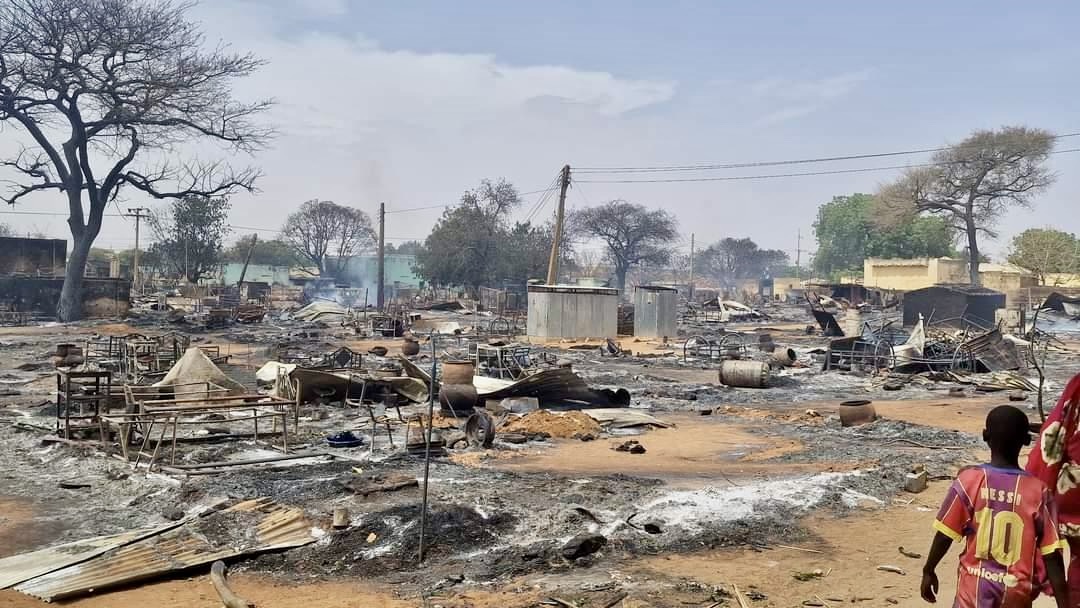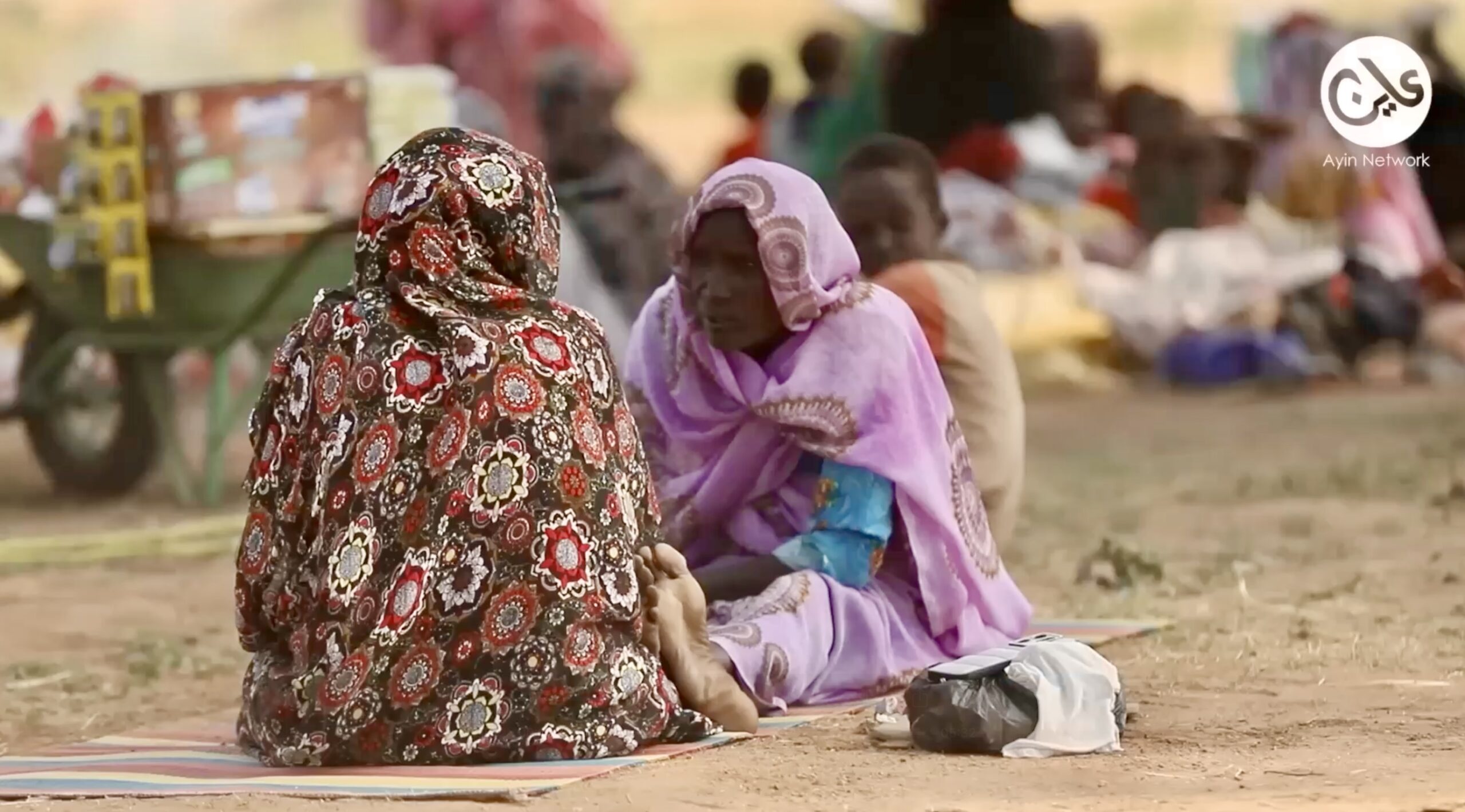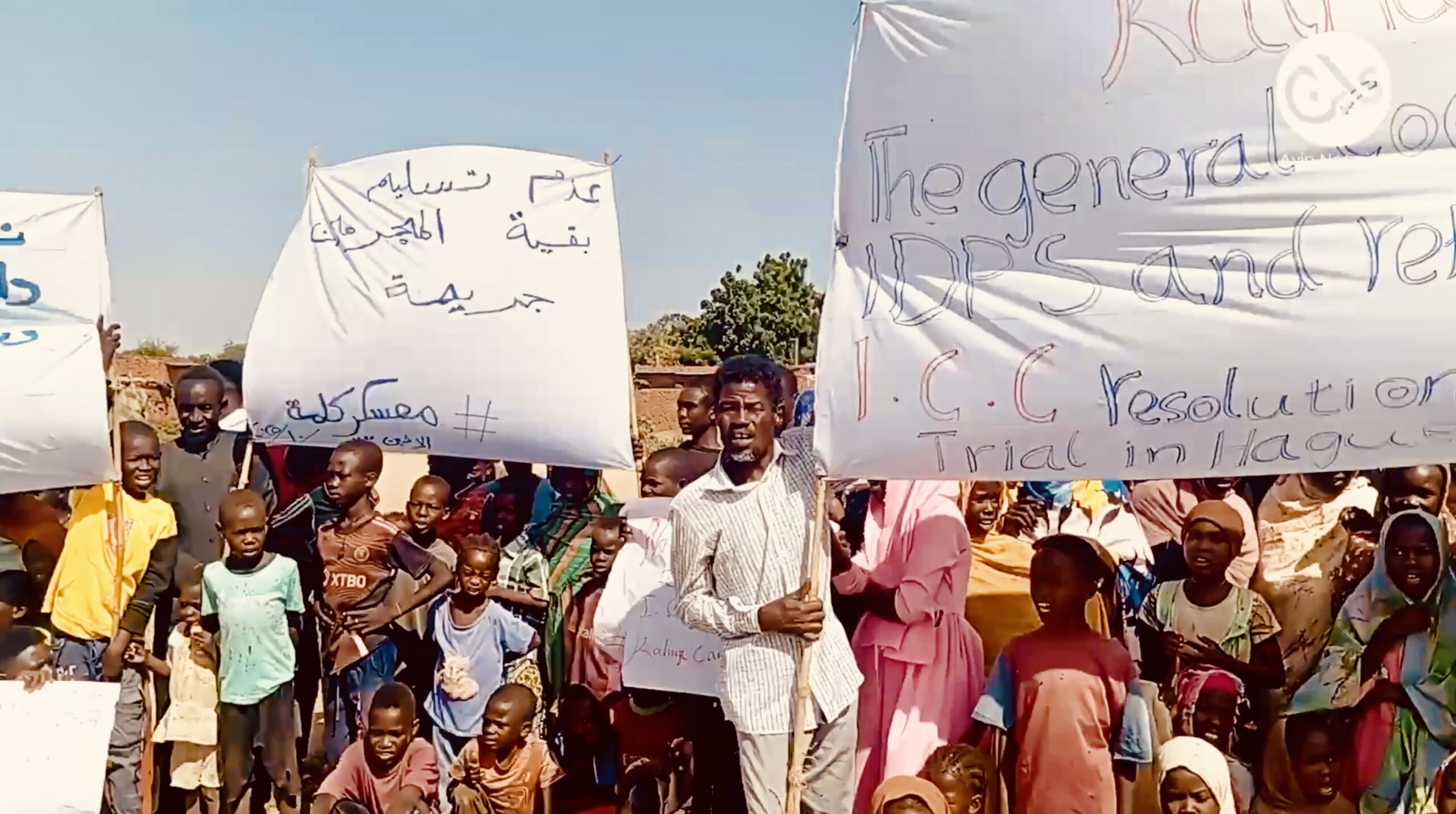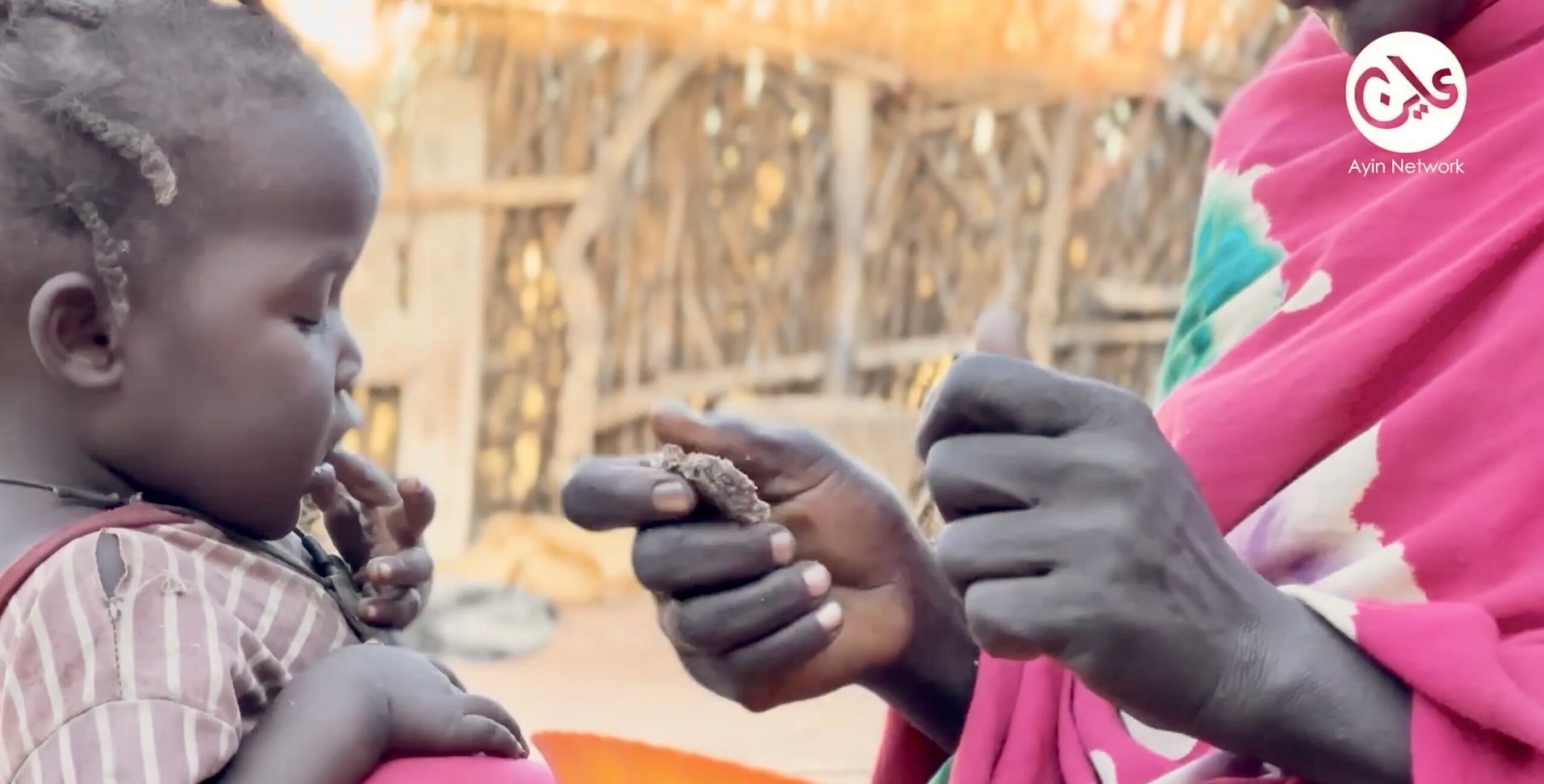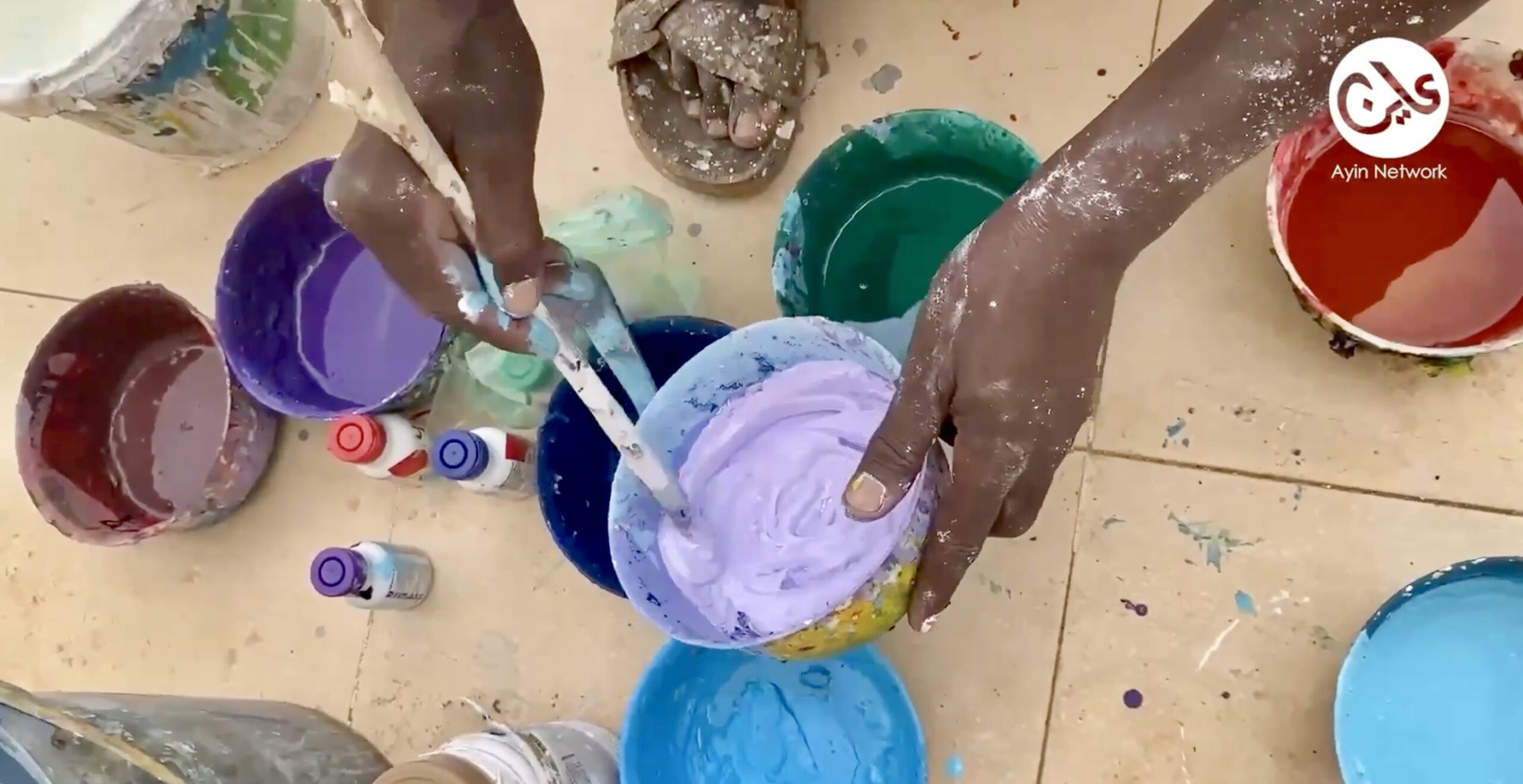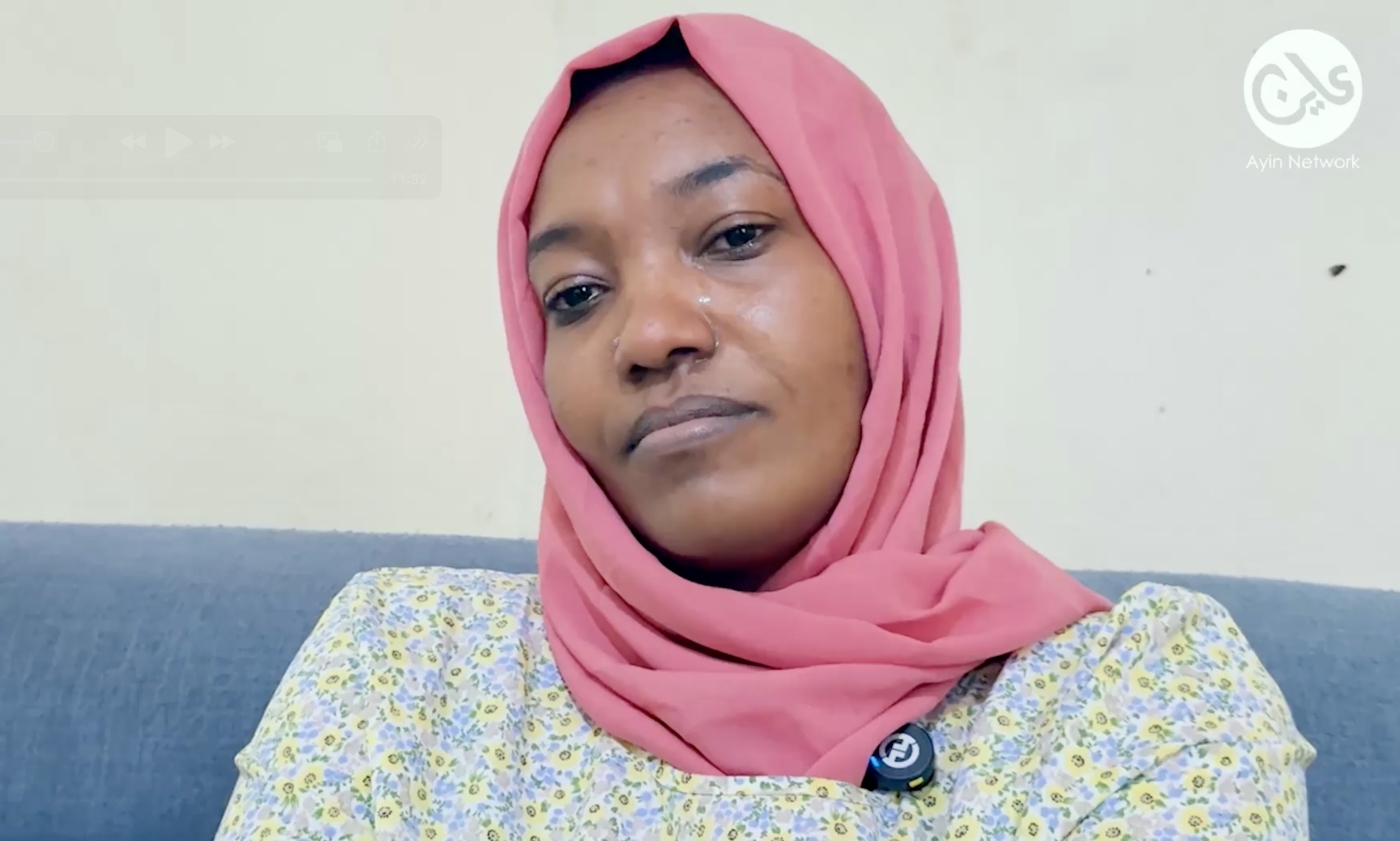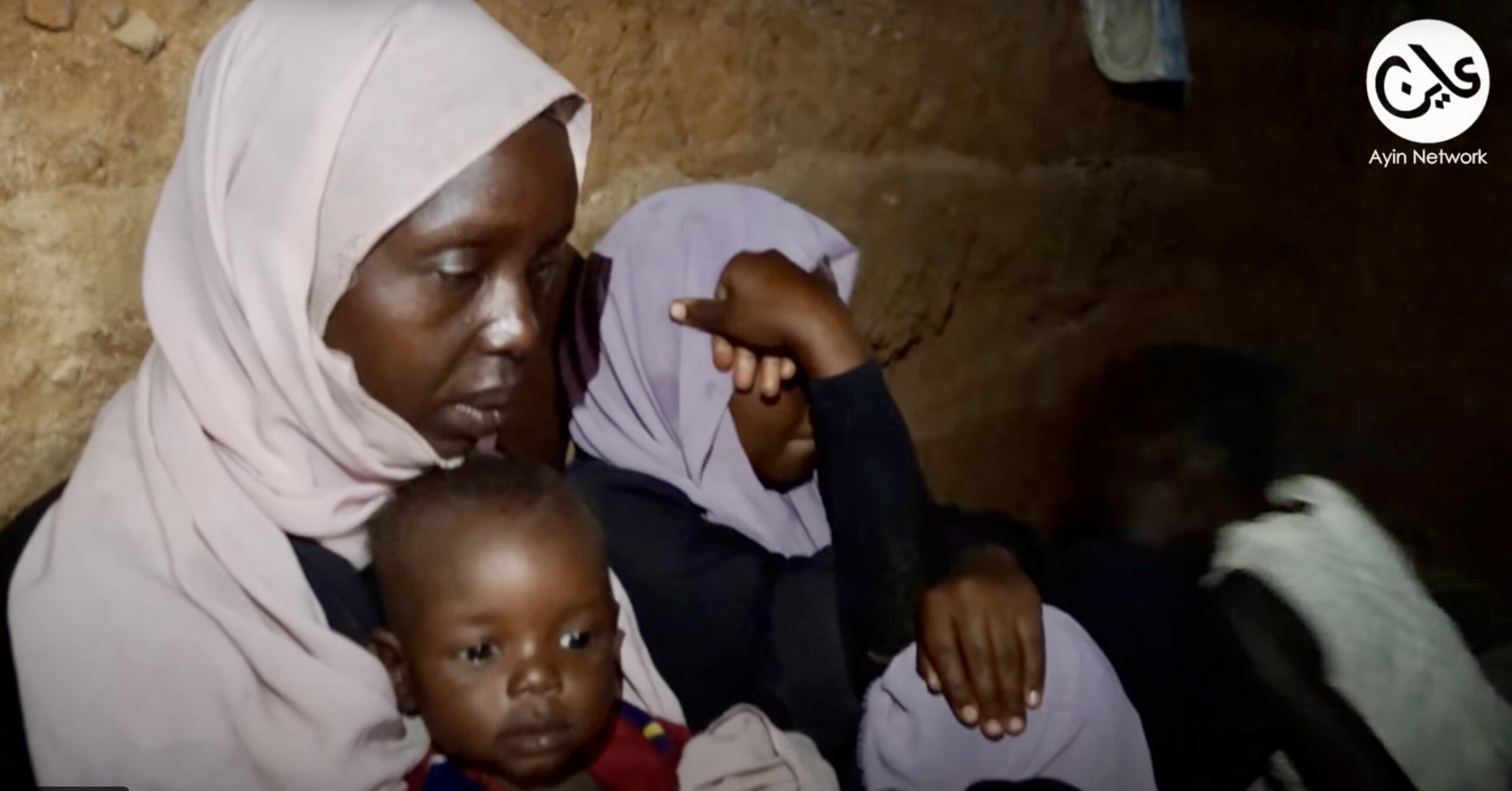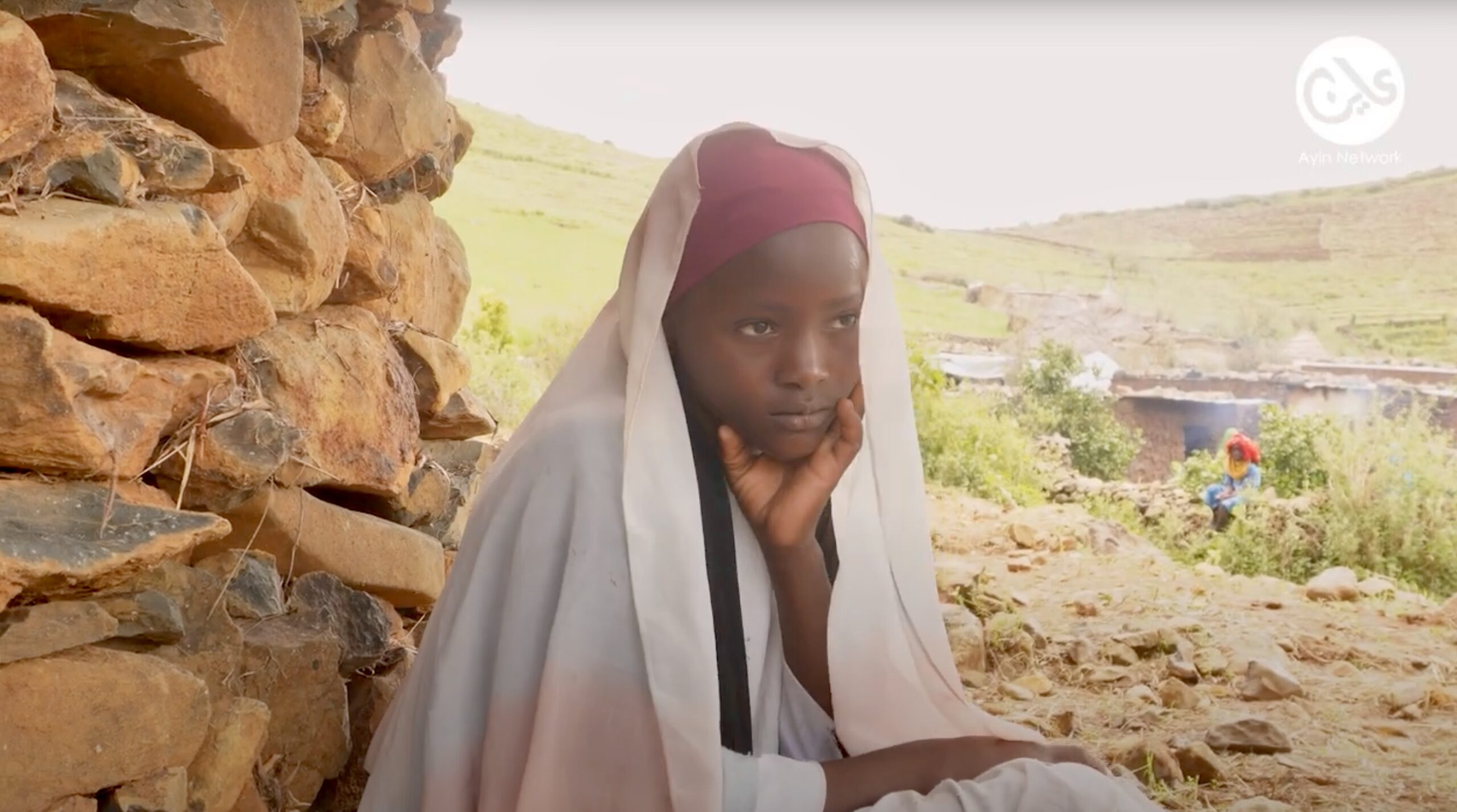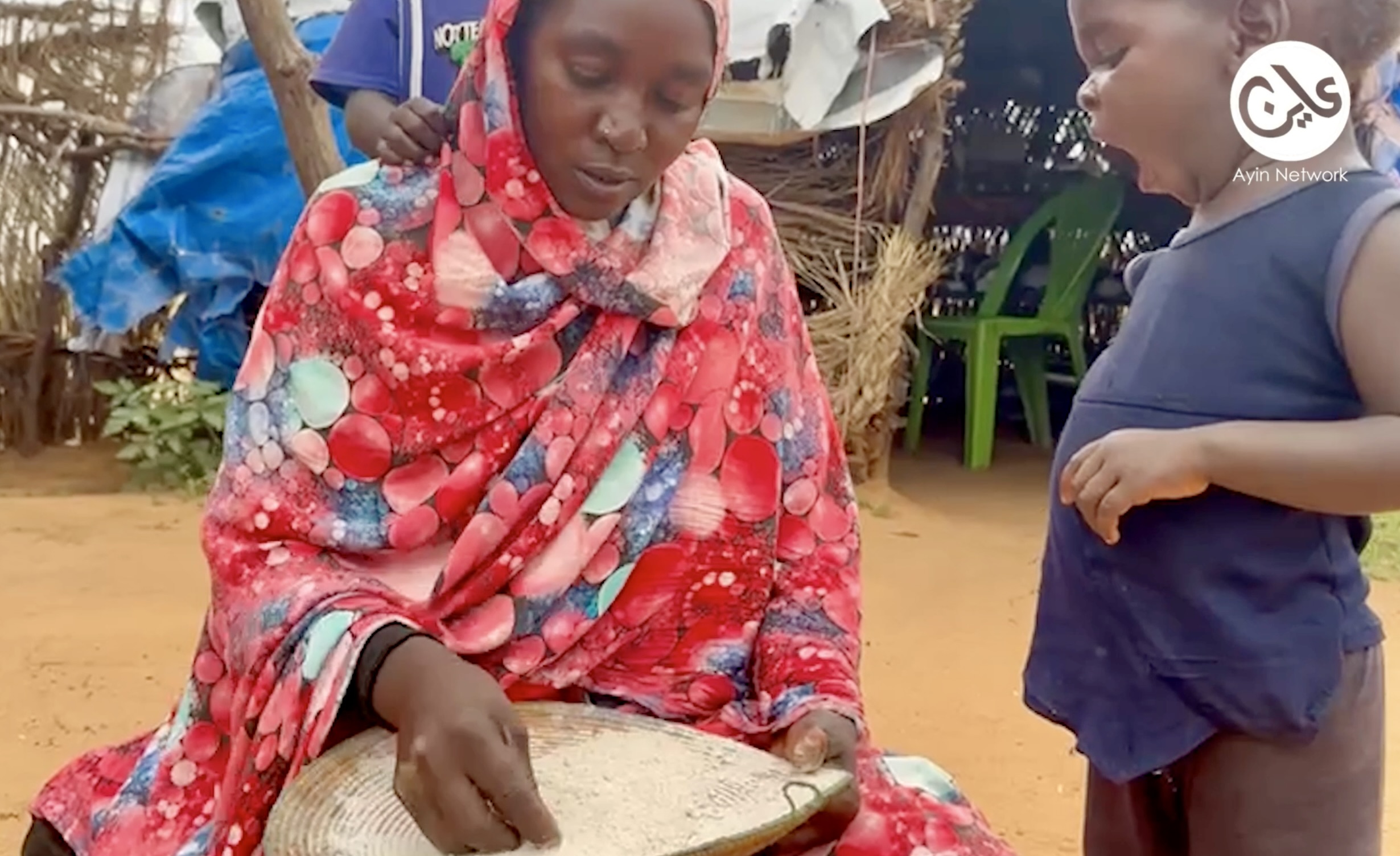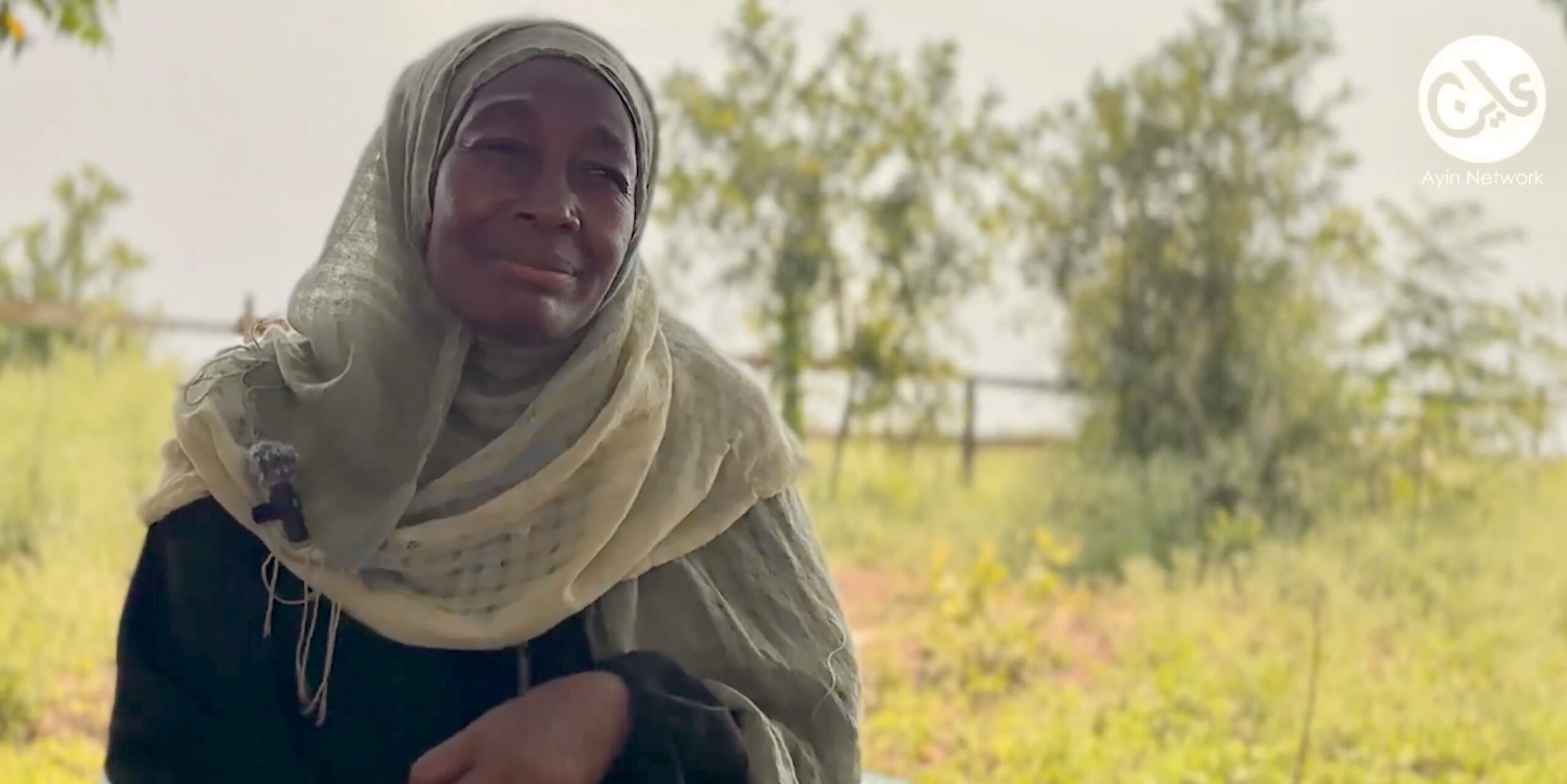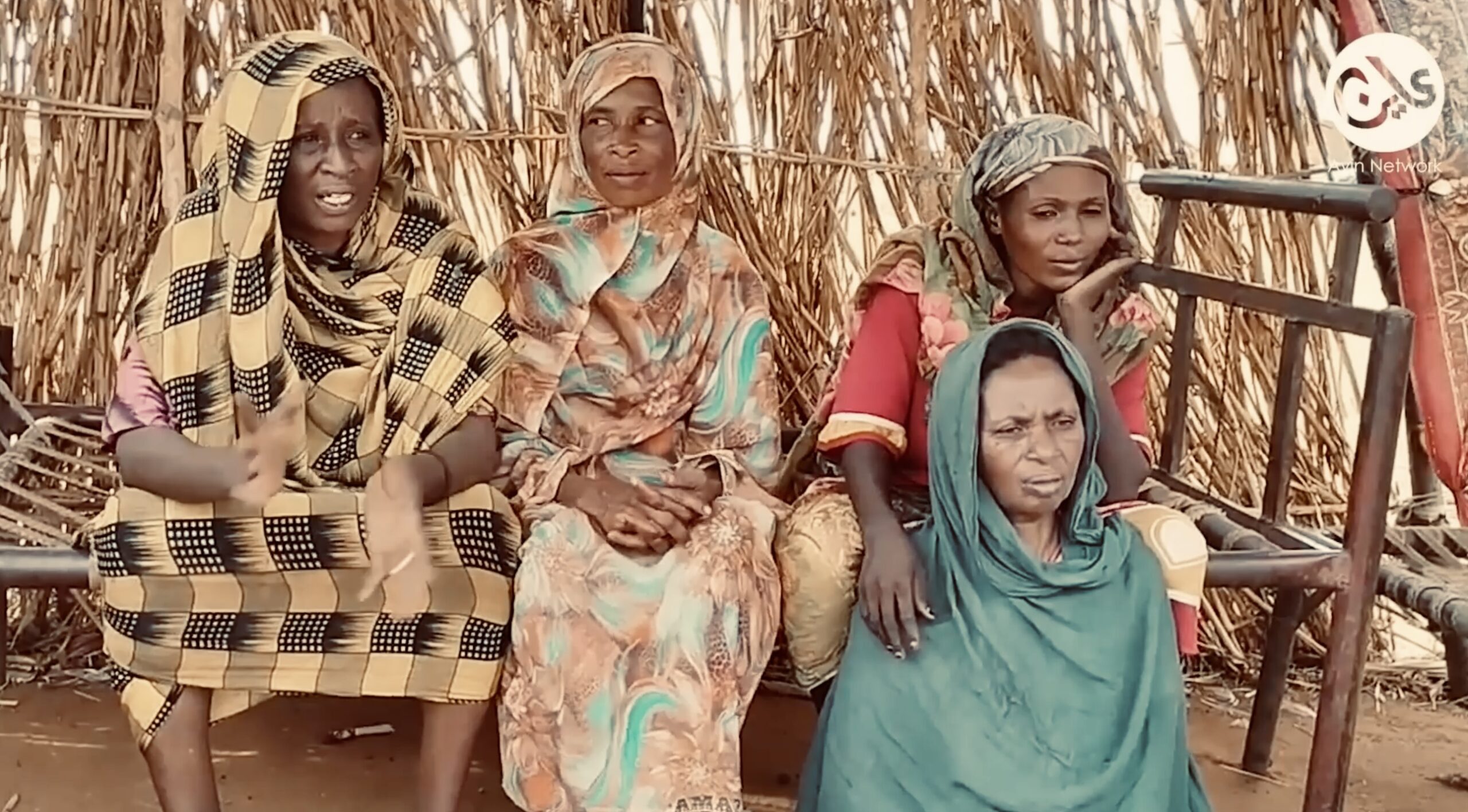Cyclical violence in West Darfur, Geneina ransacked
30 April 2023
Relative calm has finally reached the restive capital of West Darfur State, Geneina, but several residents told Ayin the fighting and destruction earlier in the week was the most intense they have ever experienced. Residents are now living in a shell of a town, with looted shops, empty government buildings, and the stark absence of any security forces to protect them.
The worst day of fighting, residents say, took place on 27 April as citizens took arms as an extension to the deadly battle between Sudan’s army and the paramilitary Rapid Support Forces (RSF).
The Sudan Armed Forces (SAF) claims the fighting is a tribal conflict, primarily between Arabic, nomadic tribes and the Masalit. But sources on the ground suggest this is a continuation of the SAF and RSF war with primarily Masalit civilians fighting RSF-aligned Arabic communities.
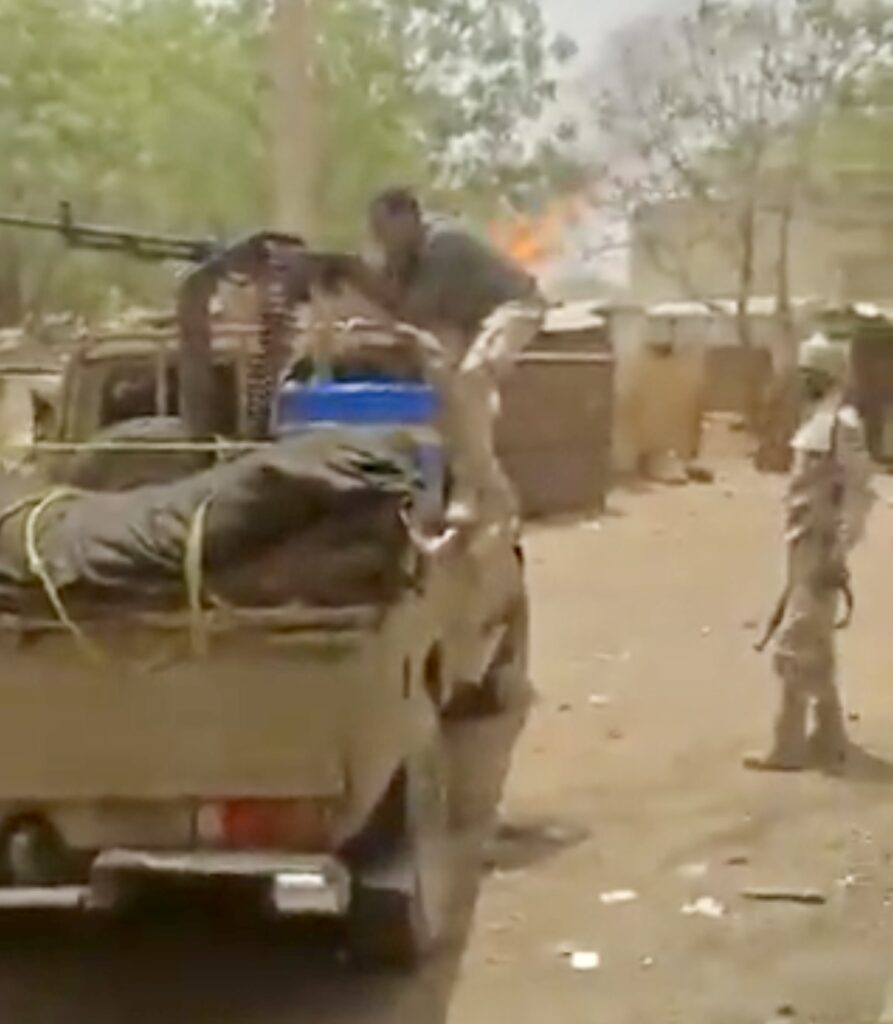
The Geneina conflict
Around 8 am on 24 April, residents woke to gunfire and a huge plume of smoke over Geneina’s El Jamarik neighbourhood that quickly spread to the city’s main police station. By Tuesday, residents from non-Arab tribes said Arabic tribes aligned to the RSF attacked the internally displaced camps, burning the shelters to the ground and then targeting other areas. Outmanned and ill-equipped, local police called on civilians, particularly the Masalit from displaced camps, to arm and defend themselves, residents said.
This recent arming takes place as the RSF and the previous regime armed Arabic nomads in Darfur to counter rebel groups and seize arable land.
Last Tuesday, Inaam El-Nour, Director of the Women for Change organisation, said her home was surrounded by RSF-aligned gunmen, forcing her to flee. “They threatened to kill me, I still do not feel safe,” Inaam El-Nour said. That same evening, some of her relatives were killed in front of their home.
For many residents Ayin spoke to, last Thursday was the most terrifying. Street battles lasted for hours and citizens found themselves prisoners within their own homes, hiding from the shelling outside. Neighbourhoods such as Al-Tadamaon, Al-Thawra, Al-Zuhoor were particularly affected. “I can’t leave my house, the gunfire is too intense, and you never know will target you,” says Hassan Ali* a resident from the Arabic community last Thursday. “But we have no water or food in the house either –-so I will have to venture outside soon.” Hassan says his living situation has been reduced to a terrible choice of either “the bullet or the stomach”.
Fighting took place with no intervention or support from the military, residents said. Instead, the SAF and RSF returned to their respective bunkers. On Friday, the State Governor, Khamis Abkar, apologised to Geneina citizens through a public statement for failing to protect them and announced a joint security force would be allocated to secure the city.
A preliminary estimate cited 96 dead from the conflict, according to Dr. Muhammad Ishaq, a member of a local Doctors’ association. But a later assessment by the association says the number doubled to 191 dead, with additional numbers coming from those who succumbed to their injuries. “Civilians from both tribes have died,” said Geneina resident Dr Tahani al-Habeeb. “There are hundreds dead, many bodies are left in the street.” On Friday, volunteers from the Red Crescent Society attempted to collect corpses from the street –-only to be fired at by unknown gunmen– forcing them to stop their operations after collecting 13 bodies.
Twenty-thousands war-affected have fled across the border in neighbouring Chad since the outbreak of fighting, the International Organization for Migration (IOM) reported.
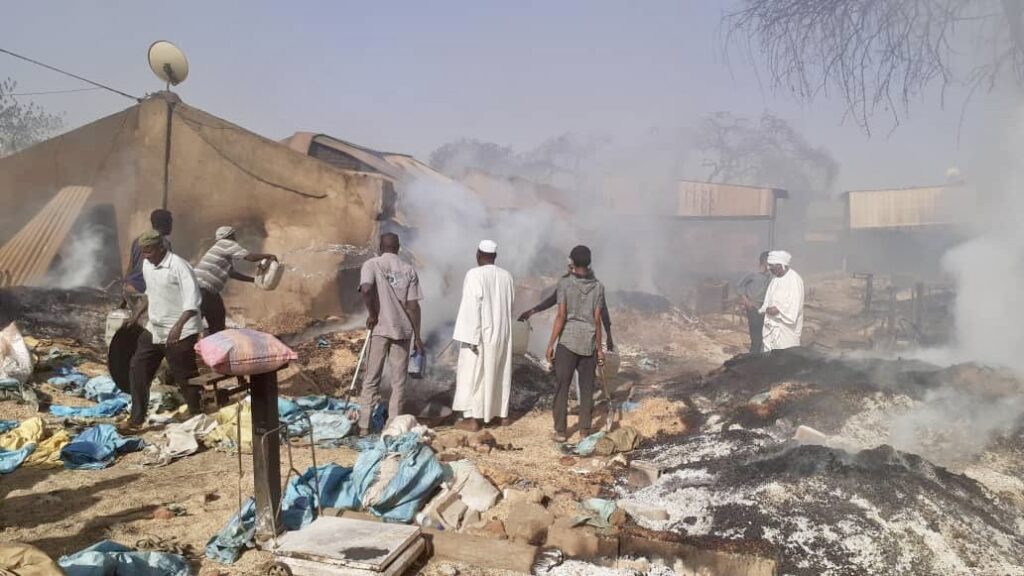
Burning and looting
According to residents across Geneina, neighbourhoods remain charred from multiple fires -especially the internally displaced persons [IDP] camps within the capital city. Numerous schools, a university, and offices for aid organisations such as the Red Crescent are completely burnt beyond recognition, resident Osam Bushara told Ayin. Armed men could be seen robbing the market and even IDPs in the camps before setting fire to their settlements, residents said. “All the ministries have been looted, even the judiciary, all employees’ houses, and cars, there is no government here –-this is our situation now,” Dr. Tahani al-Habeed said.
Perhaps most devastating of all, the conflict has shuttered nearly all health facilities, leaving the wounded with nowhere to seek medical attention, local doctors said. “There are currently no hospitals in Geneina that officially offer services – all the seriously injured are at home,” says Dr. Tahani, “the situation is catastrophic.” The city’s main hospital, Geneina Teaching Hospital, has been out of service for 10 days. “Yesterday (27 April) they robbed the hospital, including the blood banks and x-ray laboratory –-the ministry of health was burnt down, cars stolen –even the doctors’ living quarters and cars were not spared,” Dr Tahani added. “They have destroyed the entire health sector completely.”
Many Geneina Teaching Hospital staff were too scared to go to work given past raids by armed groups on the facility, doctors said. The doctors’ union requested authorities to provide security, Dr. Tahani said, but they never received a response. For years the international medical charity, Médecins Sans Frontières (MSF), has been supporting Geneina’s main hospital, among other facilities. “It is utterly unacceptable to see the El Geneina Teaching Hospital and other facilities under attack, looted, running out of staff and supplies,” says Sylvain Perron, MSF deputy operations manager. The hospital has been a lifeline for Geneina residents but also patients across the country, Perron added. The fighting has forced MSF to stop almost all their activities across the state with the exception of their support to Kereinek Hospital.
While the fighting has subsided, Bushara told Ayin, local residents are now contending with little access to electricity, drinking water, and food since all markets and shops were completely plundered. Those displaced from previous conflicts were the worst affected. “There were more than 15 shelters for the displaced in Geneina, now they are completely burnt, forcing people to sleep in the streets without shelter, without anything.”
Musa Haroun, one of the leaders of the displaced in the Aba Dhar camp, confirmed that the gunmen attacked gatherings of the displaced in the city center and burned them completely, forcing thousands of civilians to flee across the border to Chad. Without any police or other security forces in the capital city, Haroun added, the armed militias were emboldened to invade the city market and government institutions in an unprecedented manner.
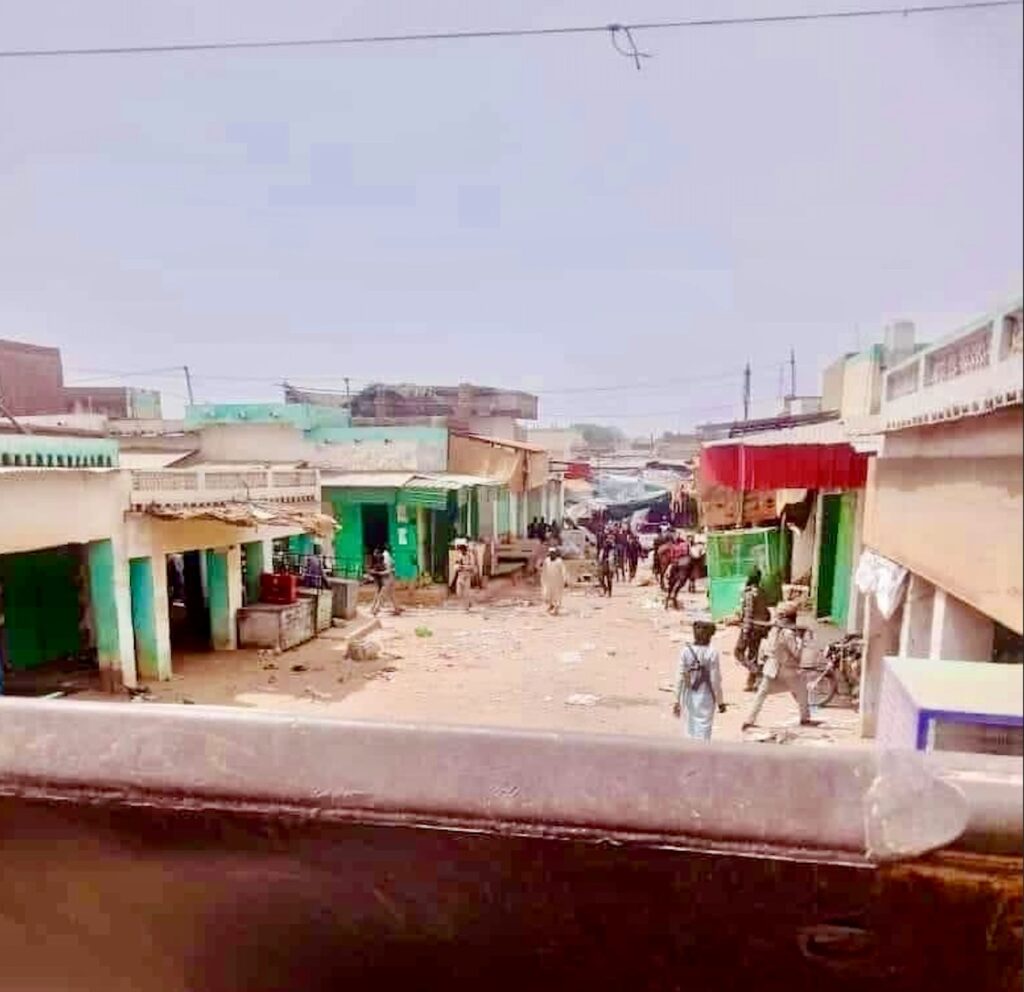
Origins of the Geneina Conflict
On 20 April, like previous conflicts in West Darfur, the latest fighting began with an altercation between two ethnic communities, according to rights groups active in the area. This escalated the following day in Kereinek town, just outside Geneina, where RSF-aligned militias killed nine people, according to the Coordinating Committee for Refugees and Displaced People. By Sunday, thousands were displaced by the violence, and the Committee estimated around 168 people were killed. The conflict then spread into the capital city. “Most of these crimes against civilians [in Darfur] start with conflict between two persons,” says Ahmed Gouja[TR1] , Regional Director of the Darfur Network for Monitoring and Documentation, a local human rights body that tries to keep track of the myriad of human rights abuses in the region. With the wide circulation of arms, often falling into the hands of civilians, these small altercations quickly become deadly battlegrounds.
The Head of the United Nations Integrated Transition Assistance Mission in Sudan (UNITAMS), Volker Perthes, expressed his concern over the violence in West Darfur, remarking in a statement that the conflict “increasingly appears to be taking on inter-communal dimensions with attacks on civilians and looting and distribution of weapons among local communities.” The attacks, Perthes said, have resulted in mass looting, including UN premises.
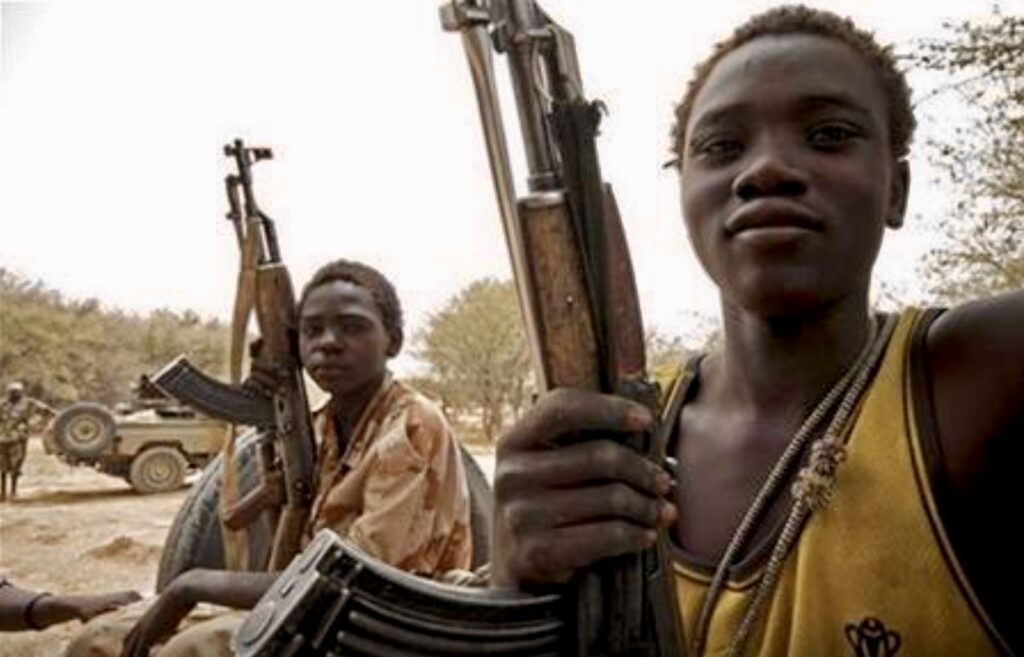
Arming civilians
While this latest conflict in Geneina has a tragic, familiar ring to past incidents, the arming of civilians from non-Arab tribes to counter the RSF-aligned forces is a new phenomenon, residents say. Local views are divided over this development. “It is positive since it helped civilians protect their property and lives – however an increase in armaments also increases violence among civilians. We may see a lot more street warfare,” Bushara said. El-Nour says she understands why the police armed civilians but also fears the long-term consequences. “Police armed people so that civilians could protect themselves,” El Nour said. With no support from the central government to provide public security, she added, arming civilians may have been the only alternative. But now armed individuals roam the city. “Children are carrying arms.”
Security forces in Nyala, South Darfur State, also armed civilians in a bid to protect properties from RSF-aligned gunmen. Nyala residents told Ayin that civilians had asked the commander of the Sixteenth Infantry Division of the army to provide them with arms to protect themselves and prevent widespread looting. A security source said citizens in Nyala’s city centre acquired around 50 Kalashnikovs, on the condition that the recipient of the weapon had previously worked in one of the regular forces.
In a similar operation, the residents of al-Sikkah al-Hadid and Abbad al-Rahman neighbourhoods, eastern Nyala, prevented gunmen on motorcycles from looting their areas.
While political analyst Mohamed Ibrahim appreciates the desire of civilians to protect themselves from rampant looting, the Omdurman-based researcher says this deadly practice has been done before. “The war in Darfur is set to grow exponentially and deadlier with both sides arming their civilian supporters,” Ibrahim said. The Darfur conflict, which has reached its 20th anniversary this month, was primarily a conflict between Darfur rebels and the former government’s recruitment of civilians from the region’s Arabic community. These same armed civilians, known as the ‘Janjaweed’, were eventually rebranded as the Rapid Support Forces. “The arming of civilians is a tried and tested formula of the former regime,” Ibrahim added, “and it is the reason we are experiencing this current (nationwide) conflict.”
* Name changed to protect the identity




